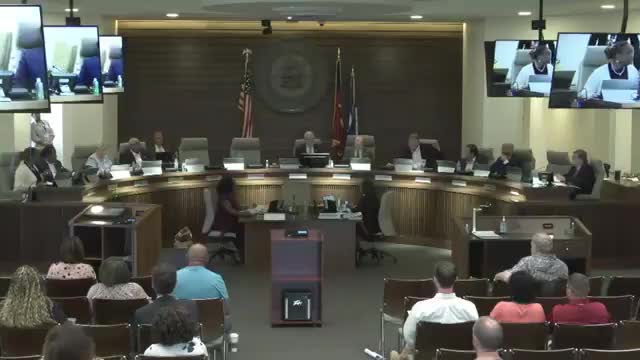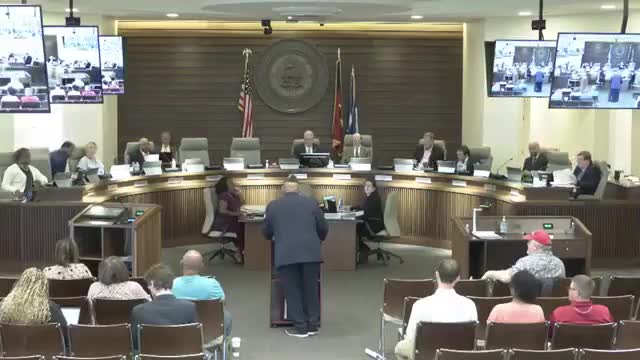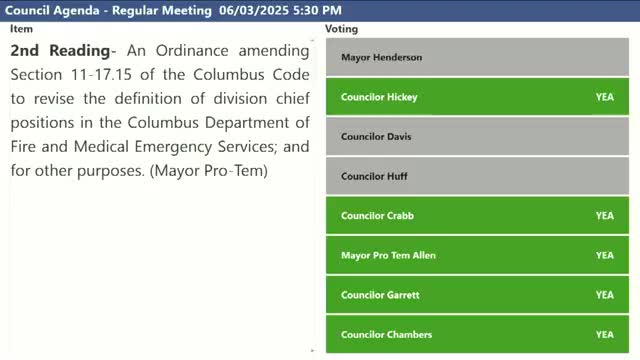Article not found
This article is no longer available. But don't worry—we've gathered other articles that discuss the same topic.

Columbus City Council approves several agenda items; Liberty District master plan adopted

Residents demand transparency after council's removal of city manager; call for public forums and legal action

